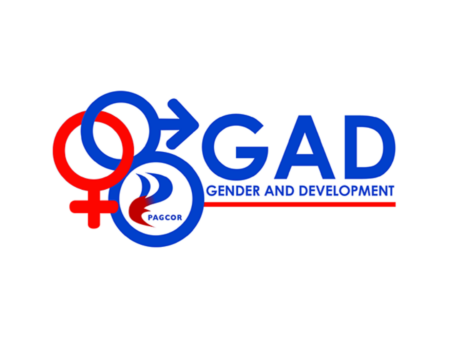The Philippine Amusement and Gaming Corporation (PAGCOR) has initiated a flagship project to create 1,200 classrooms and 200 eLearning centers across various remote communities in the Philippines. This extensive infrastructure program, undertaken with the Department of Education (DepEd) and the Department of Public Works and Highways (DPWH), reflects PAGCOR’s commitment to supporting the education sector while improving public resources in underserved areas.

PAGCOR Launches National Project to Build 1,200 Classrooms and 200 eLearning Centers in Remote Communities
The project is designed to bring much-needed educational facilities to isolated communities, while also providing essential resources for health and civic engagement.
Addressing the Education Gap in the Philippines
Educational access and facility shortages have long been challenges in many rural areas across the Philippines. These remote communities often lack sufficient educational infrastructure, including classrooms and digital learning resources. PAGCOR’s initiative to construct 1,200 classrooms over the next four years is a major step toward addressing these issues, prioritizing education for Filipino youth in disadvantaged and geographically isolated regions.
PAGCOR’s Chairman and CEO Alejandro Tengco emphasized the organization’s dedication to nation-building by providing foundational resources for learning, digital literacy, and community welfare. “We want these projects to benefit as many Filipinos as possible,” said Tengco, highlighting the collaborative role of various sectors in creating a stronger nation.
Partnership with Key Government Agencies
The initiative is made possible through a Joint Memorandum Circular signed by PAGCOR, DepEd, and DPWH. Under this partnership:
- DPWH will oversee the construction of classrooms, eLearning centers, health facilities, and civic spaces.
- DepEd will manage the schools and eLearning centers, providing teachers, administrators, and support staff necessary to operate these facilities effectively.
By partnering with these key government agencies, PAGCOR aims to accelerate the progress of this infrastructure initiative while ensuring that the facilities are well-maintained, staffed, and operational for years to come.
Expanding Digital Literacy through 200 eLearning Centers
Recognizing the importance of digital literacy in a globalized world, PAGCOR’s project includes the establishment of 200 eLearning centers in urban areas. Each center will be equipped with 48 computers and a reliable internet connection, facilitating access to online resources and enhancing computer literacy among students.
These eLearning centers aim to provide:
- Online Research Tools: Allowing students to access a wealth of knowledge and resources for their studies.
- Computer Literacy Courses: Enabling students to develop essential skills for future employment opportunities.
- Educational Platforms and Digital Content: Broadening the scope of learning through interactive and up-to-date educational content.
By integrating technology into the education system, PAGCOR is not only increasing digital access but also fostering a new generation of tech-savvy youth who can adapt to the rapidly evolving job market.
Prioritizing Health with 100 Health and Wellness Centers
As part of its broader vision to uplift communities, PAGCOR’s initiative includes the construction of 100 health and wellness centers. These facilities are expected to have:
- Doctor’s Offices and Consultation Rooms: Providing essential healthcare consultations to community members who may not have regular access to medical professionals.
- Dental Clinics and Vaccination Rooms: Offering dental care and immunization services to ensure preventive healthcare.
- Treatment Rooms: Equipped to handle basic treatments and minor medical needs within the community.
By establishing these health and wellness centers, PAGCOR aims to enhance access to basic healthcare, which is often limited in remote communities. This approach reflects a commitment to holistic community development, addressing not only educational needs but also healthcare and wellbeing.
Socio-Civic Centers: Building Stronger Communities
To promote civic engagement and social welfare, PAGCOR will build 50 socio-civic centers in various regions. These multipurpose spaces are designed to serve as hubs for:
- Seminars and Training Programs: Offering workshops and skills training opportunities for residents.
- Social Gatherings and Community Events: Acting as venues for celebrations, meetings, and other community-driven events.
- Emergency Evacuation Centers: Serving as temporary shelters in times of natural disasters, ensuring community safety during crises.
These centers play a crucial role in enhancing social cohesion and providing a space for communities to come together, share knowledge, and engage in activities that promote unity and resilience.
Building a Strong Foundation for the Future
The PAGCOR flagship infrastructure project stands as a testament to the organization’s dedication to long-term nation-building and community development. By focusing on education, digital literacy, health, and civic engagement, this initiative addresses fundamental challenges faced by underserved communities across the Philippines.
The project’s reach extends beyond immediate educational needs; it establishes a foundation for sustainable growth by ensuring that future generations have access to the tools and resources necessary to thrive. PAGCOR’s holistic approach reflects a strong commitment to building resilient communities that can withstand the socioeconomic challenges of the 21st century.
Empowering Future Generations Through Education and Health
As PAGCOR sets this ambitious project in motion, it reinforces the belief that education, health, and community well-being are interconnected pillars of societal progress. The classrooms, eLearning centers, and health facilities serve as investments in the future of the nation, empowering Filipino youth to become active, educated, and healthy members of society.
With each classroom, each computer, and each health center, PAGCOR’s initiative seeks to transform the lives of countless individuals in the Philippines, providing not just facilities but opportunities for growth, learning, and well-being.
FAQs About PAGCOR’s Flagship Infrastructure Project to Build Classrooms, eLearning Centers, and Health Facilities in the Philippines
1. What is PAGCOR’s flagship infrastructure project?
PAGCOR’s flagship infrastructure project is an ambitious initiative aimed at building 1,200 classrooms and 200 eLearning centers across remote communities in the Philippines over the next four years. The project also includes the construction of 100 health and wellness centers and 50 socio-civic centers to support education, health, and community engagement in underserved areas.
2. Who is involved in this infrastructure project?
The project is a collaborative effort between PAGCOR (Philippine Amusement and Gaming Corporation), the Department of Education (DepEd), and the Department of Public Works and Highways (DPWH). PAGCOR oversees funding, while DPWH handles construction, and DepEd manages the schools and eLearning centers.
3. What role does the Department of Education (DepEd) play?
DepEd will be responsible for operating the classrooms and eLearning centers, including staffing with teachers and support personnel. DepEd will also oversee educational programs and resources in the new facilities, ensuring they meet educational standards.
4. What are the main objectives of the PAGCOR project?
The project aims to:
- Improve educational access by building classrooms in remote communities.
- Enhance digital literacy through eLearning centers equipped with computers and internet access.
- Support community health by establishing health and wellness centers with basic medical services.
- Promote civic engagement with socio-civic centers designed for community events, training programs, and emergency shelters.
5. Where will these classrooms and eLearning centers be built?
The project prioritizes remote communities and towns across the Philippines, especially in areas where educational and technological resources are limited. PAGCOR’s goal is to bring essential services to underserved regions to bridge the educational gap and support local communities.
6. What facilities will the eLearning centers include?
Each eLearning center will be equipped with 48 computers and a stable internet connection, designed to support online research, computer literacy courses, and educational platforms. These centers aim to foster digital literacy and provide students with access to online resources.
7. What services will the health and wellness centers provide?
The 100 health and wellness centers will offer basic healthcare services, including:
- Doctor’s offices and consultation rooms
- Dental clinics and vaccination rooms
- Treatment rooms for minor medical care and preventive services
These facilities aim to improve access to healthcare in remote communities.
8. What purpose will the socio-civic centers serve?
The 50 socio-civic centers will be multipurpose spaces for:
- Community seminars and training
- Social events and gatherings
- Emergency evacuation centers in times of natural disasters
These centers are intended to enhance social engagement and provide safe spaces for community events and emergencies.
9. How will the PAGCOR project impact the future of education in the Philippines?
By increasing educational access, digital literacy, and healthcare in remote communities, PAGCOR’s project supports the holistic development of youth and strengthens the foundation of local communities. The initiative aims to empower future generations, providing the resources they need to succeed academically and grow in a healthy, supportive environment.

















